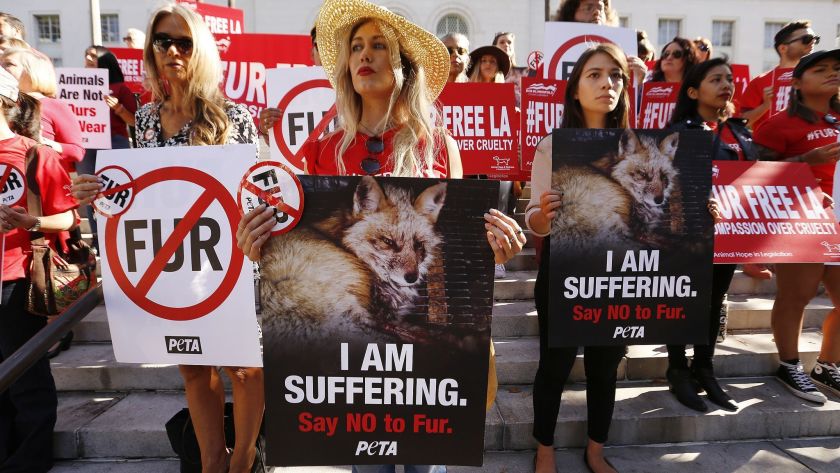

Should we put a stop to the sale of fur?
The question of whether we should put a stop to the sale of fur is a complex and contentious issue, with arguments on both sides. To provide a comprehensive answer, let's examine the arguments for and against banning fur sales, along with relevant examples and references.
Arguments in favor of banning fur sales:
1. Animal welfare concerns: The fur industry has long been criticized for its treatment of animals. Many animals, such as minks, foxes, and rabbits, are kept in small, confined spaces and subjected to inhumane conditions before being killed for their fur. Animal rights organizations argue that these practices are cruel and unnecessary.
2. Environmental impact: Fur production has a significant environmental footprint. The process requires large amounts of water, energy, and chemicals, contributing to pollution and habitat destruction. Moreover, the fur industry often uses toxic chemicals to preserve and dye the fur, which can have adverse effects on ecosystems and human health.
3. Alternatives exist: In recent years, there has been a rise in the availability of high-quality faux fur and other synthetic materials that closely resemble real fur. These alternatives offer a cruelty-free and environmentally friendly option for consumers, reducing the demand for real fur.
4. Changing societal attitudes: Public opinion on fur has shifted over time, with more people expressing concerns about animal welfare. In response, several countries and cities have already banned fur farming or sales, including the United Kingdom, Austria, and Los Angeles. This trend suggests that society is increasingly rejecting the use of fur.
Arguments against banning fur sales:
1. Economic impact: The fur industry contributes to the economy, providing jobs and income for many people, particularly in regions where fur farming is prevalent. Banning fur sales could lead to job losses and economic decline in these areas.
2. Cultural and traditional significance: Fur has been used for centuries in various cultures and traditions. Some argue that banning fur sales would infringe upon cultural practices and personal freedoms.
3. Sustainability and regulation: Proponents of fur argue that the industry has made efforts to improve animal welfare and environmental practices. They argue that implementing stricter regulations and certifications for fur production could address concerns without completely banning the industry.
4. Consumer choice: Some argue that individuals should have the freedom to choose whether or not to purchase fur products. Banning fur sales could be seen as an infringement on personal liberty.
It is important to note that the arguments presented here are not exhaustive and that opinions on this issue can vary widely. Ultimately, the decision on whether to ban fur sales should consider a balance between animal welfare, environmental impact, economic factors, and societal values.
References:
- Humane Society International. (2021). Fur: A look at the impact of fur farming. Retrieved from https://www.hsi.org/news-media/fur-look-impact-fur-farming/
- PETA. (n.d.). Fur. Retrieved from https://www.peta.org/issues/animals-used-for-clothing/fur/
- World Animal Protection. (n.d.). Fur farming. Retrieved from https://www.worldanimalprotection.org.uk/campaigns/factory-farming/fur-farming
Related Posts
© 2025 Invastor. All Rights Reserved

User Comments
Bryce Wilson
a year ago
Another aspect to consider is the cultural significance of fur. In some indigenous communities, fur has deep cultural and traditional value. Banning fur without considering these contexts could be problematic.
Chad Davis
a year ago
True. It's a matter of striking a balance between animal welfare and economic considerations. Some countries have implemented regulations to ensure more humane treatment of animals in fur farming, but there's still debate about whether these measures are enough.
Bryan King
a year ago
Some argue that the fur industry supports jobs and local economies, especially in regions where fur production is a traditional practice. So, a complete ban could have economic implications.
Rebecca Walker
a year ago
And with advancements in synthetic materials, it's possible to replicate the look and feel of fur without harming animals. So, do you think it's time to ban the sale of fur altogether?
Monica Nelson
a year ago
Agreed. There's been a growing movement against fur products, with many advocating for more ethical and sustainable alternatives.
Miley Moore
a year ago
I think it's clear that the fur industry has often been associated with inhumane practices, such as fur farming and trapping methods that cause unnecessary suffering to animals.